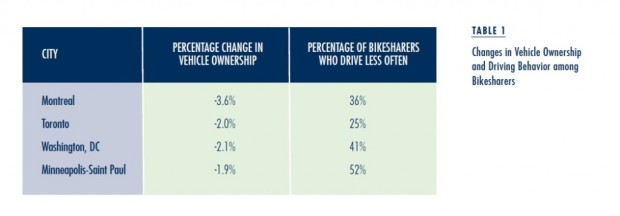Bike sharing is not exactly a modern day business. The first bike sharing program was started in Europe in 1965 but the bike sharing programs did not get their claim to fame until 2000s. Now there are bike sharing programs operational in 712 cities in the world. What made this happen? ICT!
Launched in May 1, 2008 Hangzhou Public Bicycle is one such ICT based system. Serving the city of Hangzhou in China, it is world’s largest Bicycle sharing system with 66,500 bicycles operating from 2700 stations. It uses the smart card technology with an app that provides real time information about availability of bike in each station.
Outside China, Velib is the biggest cycle sharing service. Operated by French advertising giant JCDecaux, it offers around 14,500 bicycles from 1230 bike stations in the city of Paris. Velib has the highest bike penetration with 1 bike per 97 inhabitants compared to 1 bike per 145 inhabitants in Hangzhou. What is really impressive about Velib and urban transport in Paris is how well integrated it is. The use of ICT is at its best with integration. Velib is very well connected with other sharing services such as Autolib. Autolib is an electric car sharing service that complements Velib. Operated by Bollore industrial group, it provides 2500 electric cars to its subscribers. The credit of enabling such services definitely goes to ICT but the biggest impact of ICT is to create a bigger system that facilitates last mile problem that connects users to public transport systems. Enabling such last mile systems perfect public transportation in urban settings. Such complete system provide real time information, alternate transport methods, flexibility and affordability to its users. This in turn has impact on environment by optimization of resources.
The industry that has been impacted by the growth of bike sharing programs is Auto Industry. While the correlation between initiation of bike sharing program in a city and decline in sales of cars may not be a strong argument as there are not many researches that prove this but one study shows that to be the case.
According to this study by accessmagazine.org claims following reduction in vehicle ownership in Motreal, Torranto, Washington DC, Minneapolis-Saint Paul:

Bike sharing systems have both substitutionary and complementary impact on public transportation systems. All of this impact is enabled by the innovation in ICT, which enables smooth flow and immediate availability of information.
Sources:
http://www.accessmagazine.org/articles/fall-2015/unraveling-the-modal-impacts-of-bikesharing/
http://bikeshare.com/2014/01/the-good-and-the-not-so-good-impact-of-citi-bike/
http://www.climatecentral.org/news/bike-sharing-complicated-climate-impact-17910